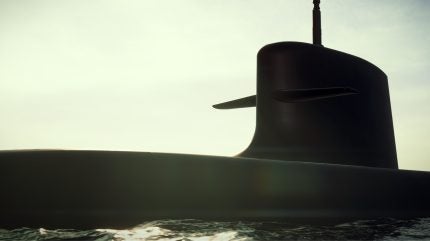
France’s Naval Group has confirmed a deal with the Royal Netherlands Navy to build four Orka-class submarines to replace the legacy Walrus-class fleet.
A contract was signed between the Dutch State Secretary for Defence, Gijs Tuinman, and the chief executive of Naval Group, Pierre Eric Pommellet, at the Directorate Material Maintenance shipyard in Den Helder, North Holland at the end of September.
Four domestically produced Walrus-class diesel-electric boats were acquired by the service in the early 1990s, according to GlobalData intelligence.
Contentious procurement
Following what the French shipbuilder has called a “thorough” evaluation and bidding process – wherein the company endured a legal challenge from a German competitor, Thyssenkrupp Marine Systems (TKMS) – four new conventionally powered boats will be delivered within the next ten years.
TKMS determined that its own bid had been unjustly invalidated and that the offers from Naval Group and Saab Kockums AB, a third Swedish competitor, should not have been deemed valid.
Nevertheless, the Dutch Materiel and IT Command proved to be the driving force behind the complex procurement process, whereupon the District Court of The Hague ruled on 24 July that the Dutch decision to award the construction of four submarines to Naval Group would stand.
Strategic autonomy
The Dutch Orka-class comes from within Naval Group’s Barracuda family of expeditionary submarines.
Barracuda missions include anti-surface and fast deep anti-submarine warfare, land attack using stealthy long-range cruise missiles, surveillance and intelligence gathering, crisis management and special operations.
“The threat is increasing all around us,” Tuinman stated. “We are investing heavily in our striking power and our contribution to Nato. We do this based on the conviction that a credible deterrent is the best defence. We prevent war by preparing for it.”

It is said that these boats will strengthen the Netherlands’ strategic autonomy, meaning the platforms are armed with cruise missiles that are capable of striking up to hundreds of kilometres behind the coastline.
The submarine has four 533-millimetre torpedo tubes with water ram weapon discharge and the boat also accommodates 18 torpedo and missiles in a mixed load.
Supporting the Dutch defence industrial base
Recently, a Memorandum of Understanding (MoU) was concluded between the Dutch and French governments. This was an important condition to enable the signing of the contract. The MoU includes agreements on, among other things, sharing information, knowledge and user rights.
The supply contract is also accompanied by an industrial cooperation agreement concluded earlier this month. This means that approximately €1bn ($1.1bn) will be spent on orders from Dutch companies and that Dutch knowledge institutes will also remain involved.
“But just as important is that the Dutch maritime manufacturing industry and knowledge institutes can show the world what we have to offer,” said Tuinman. This concerns hydraulic systems, climate installations and acoustic cladding.



